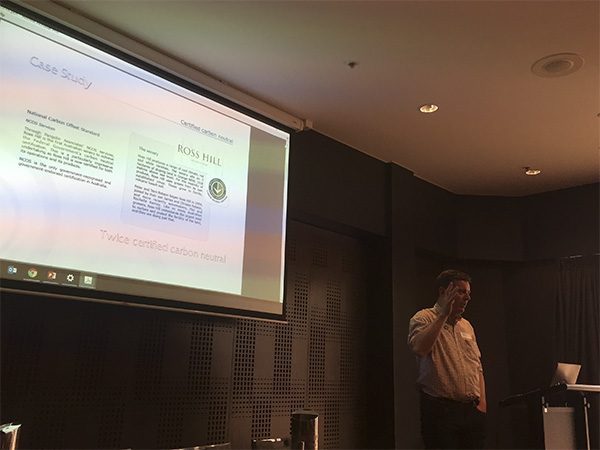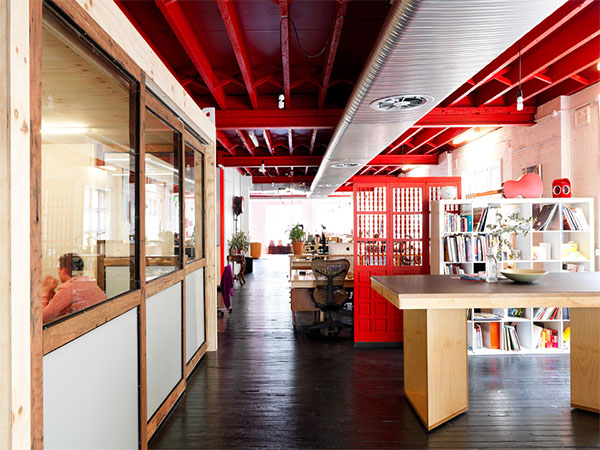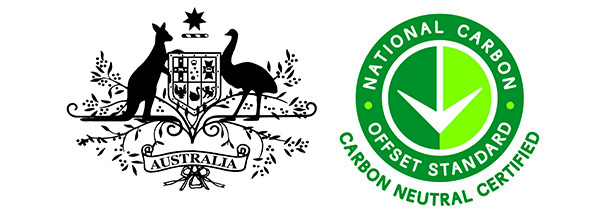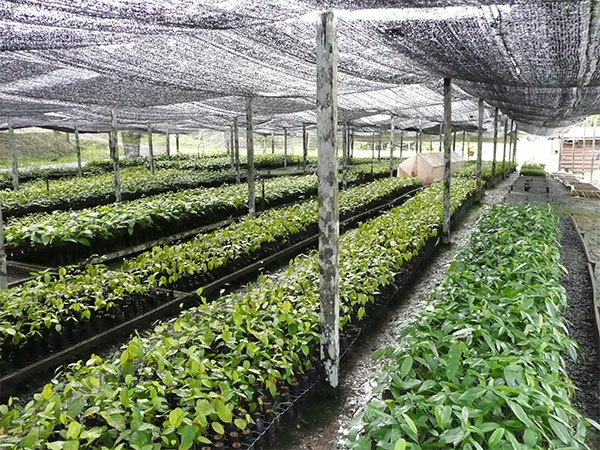News stories
- Keeping global temperature increase below 2°C: Science Based Targets – what businesses must know about
- A first for aviation and climate change action: Carbon Offsetting and Reduction Scheme for International Aviation (CORSIA)
- NCOS information sessions
- Sustainable creative agency – our client speaks: Republic of Everyone – being the change since 2007
- Pangolin becomes first NCOS certified in the sector
- A selecton of carbon credit projects
Missing out on our sustainability news?
We send newsletters periodically. Subscribe to our newsletter right here.
Keeping global temperature increase below 2°C
Science Based Targets – what businesses must know about
 Our newest services involve setting Science Based Targets (SBT). In alignment with the Paris Agreement, an SBT is your organisation’s share of greenhouse gases that can be emitted to keep global temperature increase below 2°C.
Our newest services involve setting Science Based Targets (SBT). In alignment with the Paris Agreement, an SBT is your organisation’s share of greenhouse gases that can be emitted to keep global temperature increase below 2°C.
Most voluntary reduction targets are not sufficient to reach the mitigation goals of the Paris Agreement. An SBT ensures otherwise. It tells you how much you have to reduce, not how much you can reduce. For organisations that measure carbon inventory annually, SBT’s are a logical step to structured emissions management.
Climate change leadership
The SBT approach is vital to climate change leadership. It demonstrates that your actions are serious, effective and current.
How we help
Our Science Based Target Services include:
- Establishing a business case.
- Choosing the methodology, setting the baseline, and assisting with technical aspects, such as:
- Choosing an emissions scenario,
- Selecting an appropriate disaggregation level,
- Determining relevant allocation mechanism(s).
- Calculating the target, providing both intensity and absolute reduction targets.
We help our clients communicate the Science Based Target approach for buy in, and help align an SBT with those strategies already in place.
- See news about an Australian company undertaking an SBT strategy
- Read more about our SBT Services here
Component services
We also provide services that may be taken in isolation or as part of a greater Science Based Targets action.
100% Renewable Energy (100RE)
100% Renewable Energy, referred to as 100RE, means that energy consumed through electricity, heating and cooling, transport and stationary fuels, use renewable sources. A staged approach may be taken for this component as well, bringing one or more areas to 100%.
Value Chain Carbon
Value chain carbon emissions are also known as scope 3 emissions. Scope 3 incorporates everything from the development of a product or service, to supply chain, logistics, sales, distribution, and customer usage. A great deal of your emissions reductions and cost savings opportunities exist right here. Find out more about Value Chain Carbon.
Organisations behind the SBT
The Science Based Targets organisation is a partnership between CDP (formerly the Carbon Disclosure Project), UN Global Compact, World Resources Institute (WRI) and WWF.
A first for aviation and climate change action
Carbon Offsetting and Reduction Scheme for International Aviation (CORSIA)
In alignment with the 2015 Paris Agreement, on 6 October 2016 the aviation industry announced a global market-based measure. This is historical. It means carbon neutral growth from the entire sector, the first of its kind. Domestic and international flights are responsible for about 2% of greenhouse gas emissions caused by human activity, according to the Intergovernmental Panel on Climate Change (IPCC).
The majority of members of the International Air Transport Association (IATA), 190 member states, have adopted the carbon reduction measures. These incorporate switching to cleaner, more efficient alternative fuels, capping net emissions from 2020, and reducing carbon emissions by half of 2005 levels by 2050. Any emissions growth will require offsetting with globally recognised carbon credits.
CORSIA comes into effect as of 2021, but China and the US have committed to an earlier 2020 start. Read the press release here: Airlines Hail Historic ICAO Carbon Agreement (IATA website).
Related services: Airport Carbon Accreditation
Pangolin welcomes the airline industry’s decision to adopt CORSIA. We have provided Airport Carbon Accreditation services (ACA) since 2013. The airport scheme is similar in overall objective, to reduce the impact of an emissions intensive industry, but it is voluntary.
ACA is designed for airports of all sizes and in any area. There are four levels of accreditation with an end goal of net zero emissions.
NCOS information sessions
 In September 2016 Pangolin sat on the Australian Government’s Carbon Neutral Information panels in five capital cities. The sessions were proof to us that interest in NCOS continues to grow, over 200 attended nationally. Businesses were keen to understand more about the process and benefits, which include:
In September 2016 Pangolin sat on the Australian Government’s Carbon Neutral Information panels in five capital cities. The sessions were proof to us that interest in NCOS continues to grow, over 200 attended nationally. Businesses were keen to understand more about the process and benefits, which include:
- Customer recognition and brand loyalty,
- B2B advantages (e.g. supply chain and tender wins),
- Overall cost savings from a lower carbon footprint,
- Enhanced employee engagement.
Sydney session: Ross Hill Winery makes an impact
You may recognise Ross Hill’s James Robson from our last newsletter. Pangolin worked with Ross Hill to become twice NCOS certified (first winery operations, then products). James spoke at the Sydney session. He told of his commitment to sustainability and, working with the land, to the environment, his motivation for pursuing NCOS. It was a brilliant presentation.
Since certification, Ross Hill has also experienced significant commercial benefits.
Miss the sessions?
Pangolin sat on NCOS panels in Sydney, Melbourne, Perth, Brisbane and Adelaide. Did you miss a session in your city? Contact us to learn more.
A joint effort of the Australian Government Department of the Environment and Energy, and the Carbon Market Institute, the sessions included a select number of participants in the scheme, and consultants such as Pangolin on the panels.
Sustainable creative agency – our client speaks
Republic of Everyone – being the change since 2007
 Republic of Everyone is a carbon neutral creative agency, which is only fitting since our mission is to ‘make doing good, good for business’. We specialise in marketing good products and helping Australia’s leading companies put in place sustainability strategies and programs.
Republic of Everyone is a carbon neutral creative agency, which is only fitting since our mission is to ‘make doing good, good for business’. We specialise in marketing good products and helping Australia’s leading companies put in place sustainability strategies and programs.
We are all about helping business rethink the impact of their products and operations to have a positive impact on people, society and the environment. So it’s only natural we should think that way too. With help from Pangolin Associates, we’ve been carbon neutral since we started nine years ago, and have helped many companies embed carbon neutrality as a target in their sustainability thinking.
Republic of Everyone promotes active and public transport in day to day ways of getting to work and client meetings, then offsets all scope 1-3 emissions. Like Pangolin, we are also a member of B Corp.
Currently we are helping launch Generation Yes, a campaign bringing together good people and organisations in Australia already working to minimise climate change. Pangolin is a supporter of the project. See the Generation Yes campaign here.
Ben Peacock, Founder
How we help Republic of Everyone
Republic of Everyone has been a valued Pangolin client from the beginning. We have measured the agency’s carbon footprint every year, and provided carbon offsetting services to ensure Ben and the team’s carbon neutrality.
Pangolin becomes first NCOS certified in the sector
 In past newsletters we’ve shared stories of clients who chose to take the NCOS path – the Australian Government-approved National Carbon Offset Scheme – and succeeded. We’ve worked with about a third of all NCOS certified organisations. Now we have also earned the certification ourselves.
In past newsletters we’ve shared stories of clients who chose to take the NCOS path – the Australian Government-approved National Carbon Offset Scheme – and succeeded. We’ve worked with about a third of all NCOS certified organisations. Now we have also earned the certification ourselves.
We have always been a carbon neutral business, but now our processes and actions have been audited specifically for NCOS, with GPP Audit Chartered Accountants providing the third party verification.
Proudly we’re the first company in the environmental sector to be certified.
Proof of action
The NCOS application required proof of action, which includes a measurement of emissions, our own impact on the environment, every year. This is something we have done from our first year of operation. Importantly we also maintain a low resource consumption workplace, and incorporate our supply chain into Pangolin’s processes and policies.
Carbon offsetting: we choose small-scale renewable energy
We often advise organisations on carbon offsetting. It is in high demand at the moment, and it is also a key part of the NCOS application. Since 2010 we have offset carbon emissions we cannot prevent or eliminate, mainly through a wind energy project in Tamil Nadu, India. This is a small-scale, bundled project managed by the Spinning Mills Association. See more on the project here.
- See a few more carbon credit projects that we recommend below.
- See more about our own sustainability and energy efficiency projects here.
NCOS and B CORP
Pangolin is also a founding member of B Corp in Australia, and the first B Corporation to become NCOS certified. B Corp is a global initiative that promotes the highest standards of social and environmental accountability.
A selection of carbon credit projects
 As mentioned above, voluntary carbon offsetting is in demand as a component of carbon neutrality. We regularly receive requests for advice, and for help managing the carbon credit procurement process, whether a one off such as an event, or ongoing.
As mentioned above, voluntary carbon offsetting is in demand as a component of carbon neutrality. We regularly receive requests for advice, and for help managing the carbon credit procurement process, whether a one off such as an event, or ongoing.
More often now clients are selective, choosing carbon credits for a project’s location or particular activities. For many clients it is important to align the project with their organisation’s activities or interests.
What a project might do – a few samples
Smaller, viable projects are popular, particularly bio-diversity, forest conservation, and renewable energy, such as wind and run-of-river hydropower.
Here is a sample from which we source globally certified credits. There are many other types and locations available. Contact us to find out more.
Australia
Forestry credits: Forests Alive (Tasmania): Conserving habitat and biodiversity, Forests Alive credits help protect some of Tasmania’s most endangered species, such as the wedge-tailed eagle, spotted quoll, and Tasmanian devil. They also provide income for farmers and landowners.
India
Wind power generation (Tamil Nadu): This is a grouped (bundled) wind power initiative of the Spinning Mills Association. The project develops a sustainable source of energy that meets the needs of local small and medium sized industries.
Vietnam
Rice Husk Thermal Energy Generation (Cai Be District): Cai Be District turns food waste into clean energy. Previously processing rice for bran oil meant the disposal of husks into waterways, which created an environmental problem.
Indonesia
Rimba Raya Biodiversity Reserve (Borneo): InfiniteEARTH initiated this biodiversity project that conserves more than 91,000 hectares of tropical peat swampland.
Standards
Primarily Pangolin Associates provides carbon credits created under the Verified Carbon Standard (VCS), or the Gold Standard (GS). Both meet the requirements of the Australian Federal Government’s National Carbon Offset Standard (NCOS).
